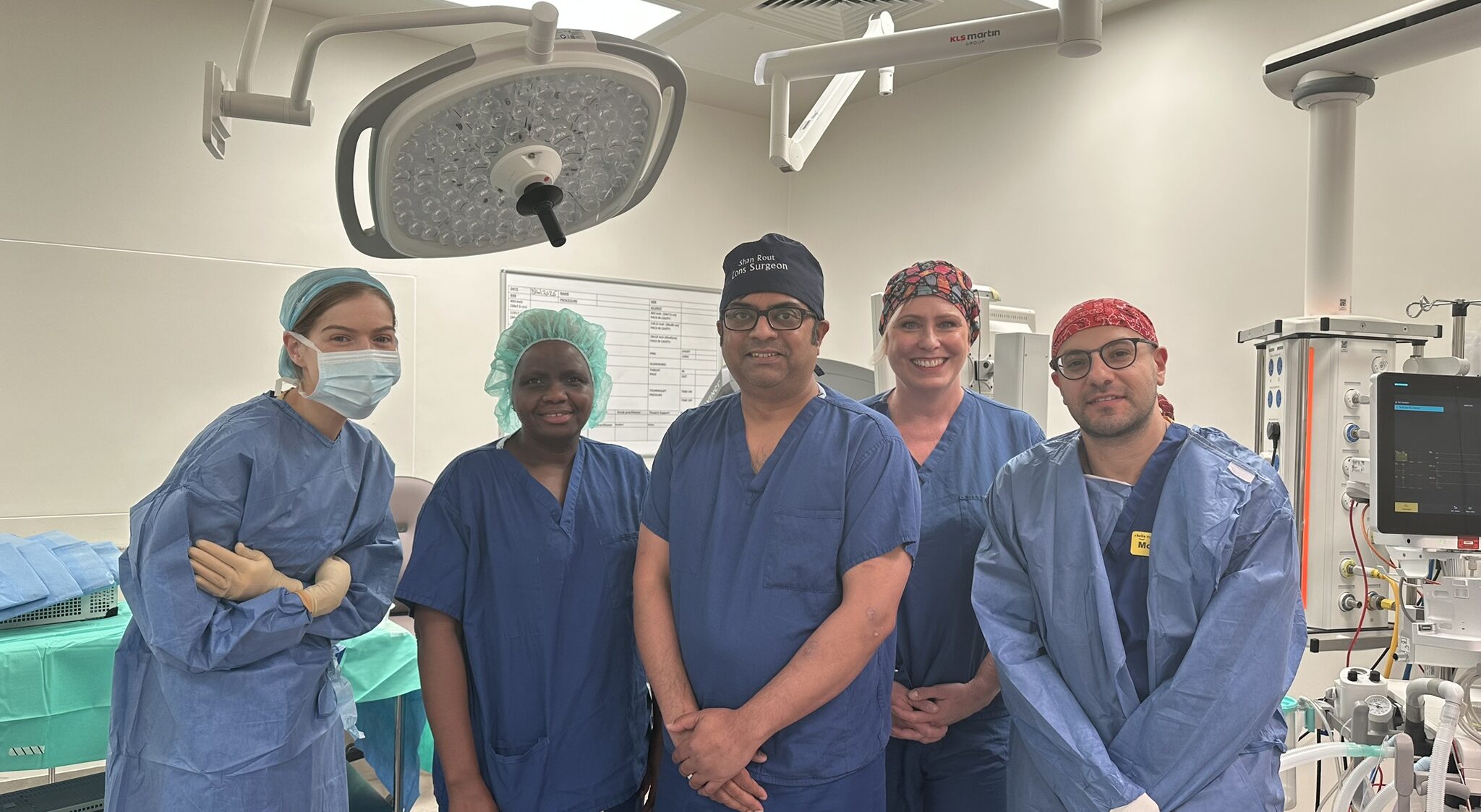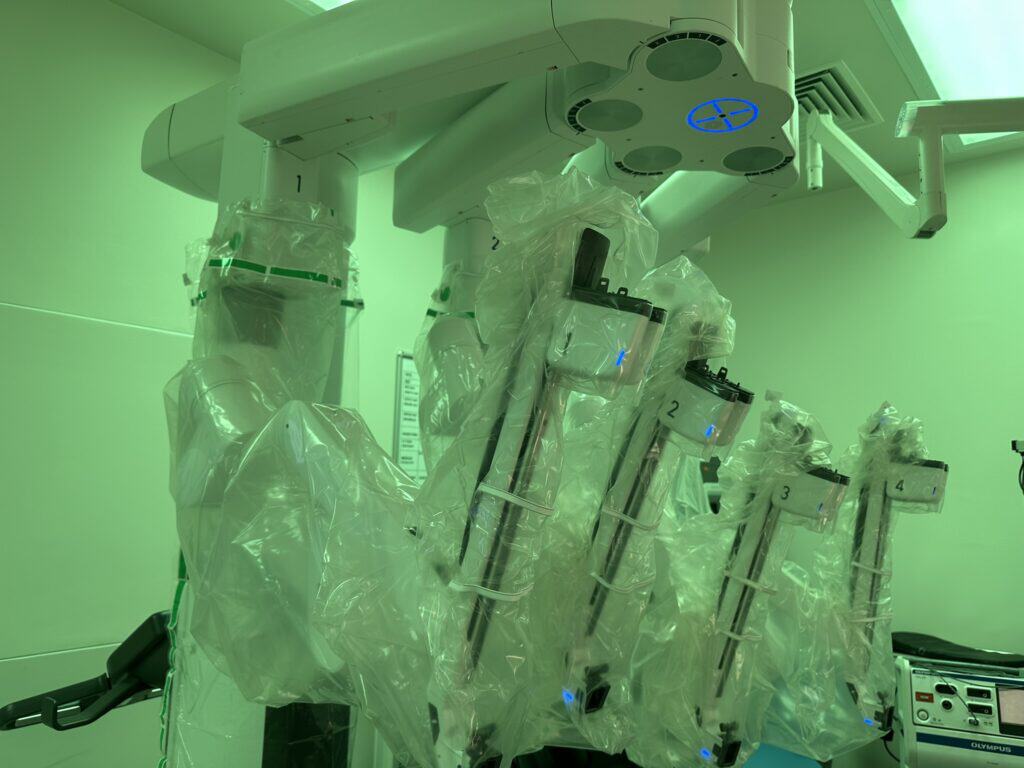
Surgeons at the Midland Metropolitan University Hospital have successfully performed a robotic-TAMIS surgery, the first robotic colorectal surgery of its kind to be performed in Birmingham and the Black Country.
Transanal minimally invasive surgery (TAMIS) is a technique to remove polyps and early-stage cancers from the rectum.
It removes potentially cancerous tissue and decreases the chances of patients requiring major surgery or permanent stomas in the future.
Colorectal surgeons at Sandwell and West Birmingham NHS Trust have been performing TAMIS since 2024 but have now used a da Vinci surgical robot to carry out the procedure.
With the Robotic-TAMIS (r-TAMIS) technique, one surgeon controls both the telescopic camera and the surgical instruments using a surgical console. This provides extra manoeuvrability of the instruments, making it much more ergonomic to perform than conventional TAMIS surgery.
The procedure also removes polyps whole, rather than in separate parts, making it easier for the tissue to be examined for cancer.

The first patient to benefit from the r-TAMIS technique was 54-year-old Steven Millward from Oldbury. Steven had emergency surgery for bowel cancer in 2020 and during a routine check-up, a polyp-like growth in his rectum was discovered by clinicians.
Samples showed premalignant change in the tissue, and so the decision was made to offer him r-TAMIS to remove the polyp.
Consultant Colorectal and General Surgeon Mr Shantanu Rout, who performed the procedure said: “NHS England have recently announced that they are anticipating a significant expansion of robotic surgery to speed up patient care and cut down waiting lists. By 2035, it’s estimated that 90% of all keyhole surgery will be robotic.
“I’m delighted that we are able to provide this robotic approach for rectal lesions at the Midland Metropolitan University Hospital. It makes me proud to be able to provide state-of-the-art care for our patients.”
The design and increase in size of theatres at the Midland Met has helped facilitate the expansion of robotic-assisted surgery at the Trust. The new hospital, located in Smethwick, features eleven surgical theatres and two maternity theatres, as well as dedicated space to expand into in the future.

